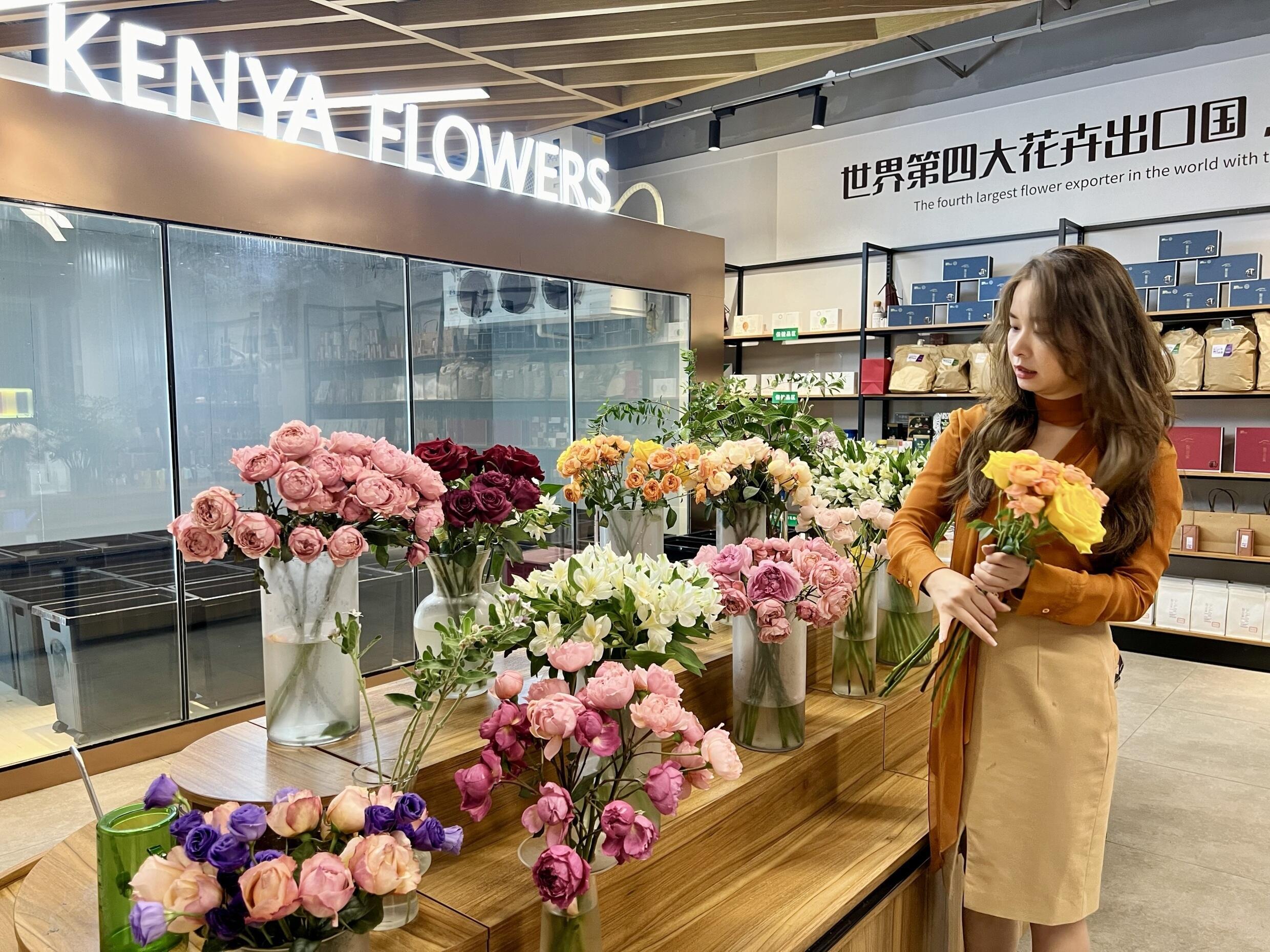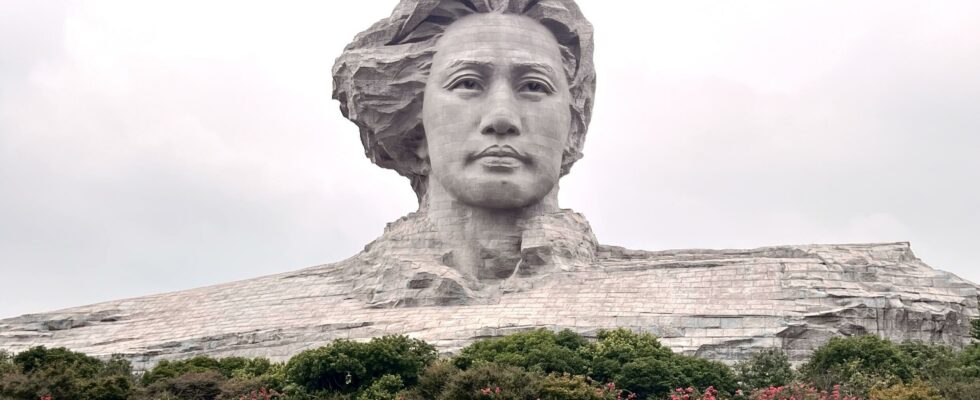In the heart of the Hunan region, in Changsha, China, is the permanent China-Africa Economic and Trade Exhibition Center, which brings together pavilions from each country on the African continent. It is a center where you can find flowers, jewelry, or even tea imported from the slopes of Kilimanjaro. There, all eyes are on the Forum on China-Africa Cooperation (FOCAC), which could offer more opportunities to traders.
From our correspondent in Beijing,
A large building in the heart of Changsha, the capital of Hunan, houses the largest space dedicated to African businesses. There are about fifty pavilions representing almost every country on the continent.
In recent decades, Changsha has become a fast-growing city, thanks to the rapid urbanization and industrialization of the China. It is a major center for manufacturing, education, and technology, particularly in the automotive and machinery sectors. Changsha’s economy is robust, with industries in equipment manufacturing, electronics, and high-tech innovations.
Since 2019, Changsha has been the host city of the biennial China-Africa Economic and Trade Expo. The event serves as a major platform for strengthening trade relations and promoting investment between China and African countries. It showcases products, projects and business opportunities from China and Africa.‘Africafostering partnerships in sectors such as agriculture, manufacturing and technology.
Changsha-based companies and institutions work to improve agricultural productivity in Africa through training programs, technology exchanges and joint ventures, which support food security and rural development across the continent.
Successful import export
Sitting behind a tea table, Chen Shu Hui, the manager of Hunan Rift Valley Purple, serves her Purple Tea, organic purple teawhich comes straight from the Kenya. ” Purple tea is unique because it grows on the slopes of Kilimanjaro, at an altitude of over 2,000 metres,” she explains. “Because of the strong ultraviolet light and where it grows, no pests, so no need to use pesticides. It is rich in minerals and trace elements, making it a rare gem among teas.”
What enabled him to import Kenyan tea was the Green Lanes – the simplification of customs procedures aimed at improving trade efficiency between China and African countries. Thanks to increased cooperation facilitated by trade fairs and strong government support, China Southern Airlines has increased its direct flights to three per week. That combined with subsidies for shipping costs… it is a strong support.”
Sending Chinese tea specialists to Kenya allows for the export of know-how, while creating opportunities on the ground. They use Chinese equipment imported from China. This has had an impact on our farms by providing significant employment opportunities to the local population. This also allowed their agricultural products to enter the Chinese market.”
She is not the only one to have found a market in Kenya that can satisfy Chinese consumers. Huang Zinan, the director of Xiyue Flowers, arranges bouquets of twelve roses on her stall. 50 euros, that is the price of these resplendent flowers with their unique scents. Fresh flowers require a very efficient transportation environment. Thanks to the green circuit policy, once flowers picked in Kenyathey can arrive here in 17 hours. If the customs clearance time was extended, the flowers would be dehydrated and fresher. »

The Green Lanes have also enabled it to reduce the time and cost associated with importing and exporting goods between China and Africa. We have a priority policy at Changsha Airport customs, which allows fresh produce to be cleared in less than half an hour. Hunan is a pilot province for China-Africa trade and has special policies that are favorable to promoting economic and trade activities with Africa. »
Changsha therefore has a head start in trade with Africa compared with other regions. Huang Zinan hopes that the China-Africa Forum will expand opportunities. The Forum discusses various topics regarding trade between China and African countries. There could be more product entry approvals or discussions on possible investments, which is of particular concern to us. »
This ease of trade between China and the African continent now makes it want to import avocados from Kenya, or even ornamental fish from Tanzania.
A market destined to open up further
Today, it is necessary for African countries to diversify their markets, as explained by Sena Yao von Kujovi, Africa-China policy analyst for Developments Reimagined, an international development consultancy. It is important that African countries do not just export raw materials, but add value to their raw materials so that they can penetrate the Chinese market. »
The analyst explains that there is a trade deficit problem. This deficit has widened between 2021 and today. It was about $43 billion. In 2023, it has increased to $63 billion. ” One way to counter this phenomenon is therefore to increase not only the volume of agricultural trade, but also the value of everything imported into China. »
Also readChina-Africa Forum: “China-Africa economic relationship remains fundamentally a North-South relationship”
For Sena Yao von Kujovi, Chinese investments raise eyebrows in the international community. I think you just have to look at the headlines and what some political leaders are saying. It is obvious and blatant that they are very skeptical of China. Some African leaders are skeptical of China, but what we see is that a number of African leaders and African institutions that are really engaging with China find that criticism to be very simplified. »
For him, this analysis does not take into account the willingness of African countries to engage with China. The discourse is simply to think that trade relations are imposed on Africa by China, which removes all power from African governments. ” This discourse must therefore be more balanced in order to be able to consider African perspectives more and understand why, compared to other partners, relations between China and Africa are developing in this way.. »
The promises of Focac 2024
The growing debt burden of many African nations, due to Chinese loans, is a persistent problem. While China has played a key role in financing infrastructure projects, there are growing concerns about the long-term sustainability of these debts, particularly in small and economically fragile African states.
The Chinese President Xi Jinping outlined its ten-point action plan that will be included in the final declarations: trade, industries, interconnectivity, development, health and agriculture are among the major themes.
The most anticipated news from this forum: Beijing will unilaterally expand the opening of its market. Chinese government to provide financial support to Africa of 360 billion yuan, about 45 billion euros, in the next three years.
One of the main priorities is to modernize Africa’s infrastructure – Xi Jinping’s phrase ” small but beautiful projects » – « small but beautiful projects » – comes up very often and implies a desire to engage in projects better adapted to the specific needs of local communities.
African countries want better trade conditions with China. Many of them hope for a reduction in trade imbalances and better access to Chinese markets for African agricultural and manufactured products. The next three years will be, according to the final declaration of Focac 2024, dedicated to compensate for imbalances.
Also readAhead of China-Africa Forum, Xi Jinping Holds Multiple Meetings with African Leaders
